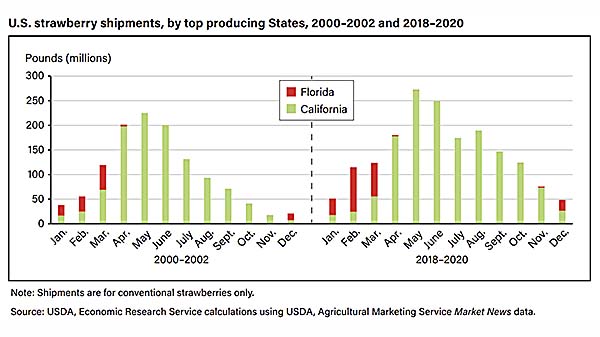Dear Editor,
I’m writing to express my dissatisfaction with the article, Florida Strawberries’ Secret Problem, that was published online September 21st.
The author reaches an uninformed assumption about Florida’s difficulty competing with Mexico. He concludes it is because Florida growers failed to recognize the organic trend. He cites a recent USDA paper and then leaps to a hypothesis without digging a little further. He ignores other factors in the competitive landscape.
My company, Wish Farms BB #:111764, is the largest (and first) commercial organic strawberry grower in Florida. We are also the largest marketer of conventionally grown strawberries in the state. If anyone understands the challenges that the Florida industry faces, it is our team that has been doing it the longest.
There are major differences between Mexico and Florida. Growing organic strawberries in Florida is much riskier business than growing in other places like Mexico or California. Yields are always much lower, and costs are much higher.
We were pioneers in farming organic strawberries in Florida. Like the early pioneers going west, we ended up with quite a few arrows in our backs. Many years we lose a good portion of the crop to disease.
The 14 acres in 2008 mentioned in the article was all ours. We expanded to 200 acres over the years, but not without trials and tribulations. To maintain that 200 acres, we need 600 acres of farmable land because we rotate one year on, two years off because of the heavy presence of soil-borne diseases.
In Plant City and Dover, the farm size and land cost does not allow for the luxury of growing a crop every three years. We are growing further south in Manatee County, where there is more farmable land, but it is on the fringe of where strawberries can be grown commercially.
The University of Florida study that was cited in the article accurately portrays the unfair trade practices of the Mexican government. We are not close to playing on a level field with them.
The Mexican government, in the past, has allegedly made illegal subsidies for growers’ infrastructure, which has had a lasting impact. Workers make a small fraction of what we pay in Florida. Strawberry harvesters in the U.S. make more in one hour than what their Mexican counterparts make in one day.
Maybe that is Florida strawberries’ secret problem. Florida’s market share has diminished largely because of this imbalance, not because we do not grow as many organics.
Florida growers continue to get squeezed and attacked from all sides, so it is important that people know the facts and understand the challenges. Having a flourishing domestic supply of fruits and vegetables is not only a good policy for our country, but also a national security issue.
Respectfully,
Gary Wishnatzki
Owner of Wish Farms



